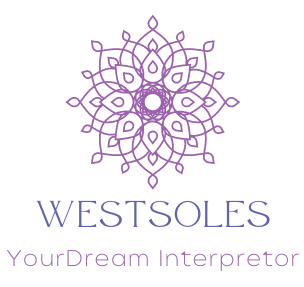Dreams have long been seen as windows into our subconscious minds, offering glimpses into the deepest recesses of our thoughts and desires. The interpretation of dreams has been studied for centuries, with cultures around the world attributing various meanings and symbols to the images that appear to us while we sleep.
Dreams can be both literal reflections of our daily experiences and symbolic representations of our innermost fears and desires. Understanding the meaning behind our dreams can offer valuable insights into our emotional and psychological well-being. By exploring the symbolism present in our dreams, we can uncover hidden truths about ourselves and gain a deeper understanding of our own motivations and fears.
Interpreting dreams is a highly personal and subjective practice, as each individual’s experiences and emotions play a significant role in shaping the symbols that appear in their dreams. By delving into the realm of dream interpretation, we can unlock the powerful messages that our subconscious minds are trying to convey to us.
Dream Of Interpretation Symbolism
Dreams have long been seen as a way for our subconscious mind to communicate with us, and many people believe that the symbols we encounter in our dreams carry significant meanings. One common theme in dreams is the idea of interpretation, or trying to make sense of the symbols and messages that are presented to us while we sleep.
In psychology, dream interpretation has been a topic of interest for many years. Sigmund Freud, one of the pioneers of modern psychology, believed that dreams were a way for our unconscious desires and fears to be expressed. He developed the theory of dream analysis, which suggests that the symbols and events in dreams represent hidden aspects of our psyche. By exploring these symbols and their possible meanings, Freud believed that individuals gain insight into their innermost thoughts and emotions.
Carl Jung, another influential psychologist, expanded on Freud’s ideas and developed his own theory of dream interpretation. Jung believed that dreams were a way for individuals to connect with the collective unconscious, a shared reservoir of knowledge and symbols that all humans inherit. According to Jung, the symbols in dreams represent archetypes, universal patterns and images that hold deep significance across different cultures and time periods.
In mythology, dreams have also played a significant role in many cultures. In ancient Greece, for example, dreams were seen as messages from the gods and were often interpreted by priests or oracles. The ancient Egyptians also placed great importance on dreams, believing that they reveal important truths about the future or guide individuals in their decision-making.
In many cultural beliefs, certain symbols are thought to have specific meanings in dreams. For example, water is often associated with emotions and the unconscious mind, while birds are seen as messengers of the divine or symbols of freedom and transformation. Snakes, on the other hand, are often viewed as symbols of temptation or deception.
The significance of dream interpretation lies in the idea that our dreams can provide valuable insights into our innermost thoughts and emotions. By exploring the symbols and messages that appear in our dreams, we be able to uncover hidden fears, desires, or unresolved issues that are affecting our waking lives. Dream interpretation can also be a powerful tool for self-discovery and personal growth, helping individuals to gain a deeper understanding of themselves and their relationships with others.
Overall, the symbolism behind dream interpretation is a rich and complex topic that draws on psychology, mythology, and cultural beliefs. By exploring the meanings of the symbols that appear in our dreams, we can gain valuable insights into our inner world and uncover hidden truths about ourselves. Dream interpretation can be a powerful tool for personal growth and transformation, allowing us to tap into the wisdom of our subconscious mind and unlock the secrets of our psyche.
Dream Of Interpretation Interpretation
The Dream of Interpretation is a complex and symbolic dream that offers insight into the dreamer’s subconscious thoughts and emotions. The dream content, which includes a dream within a dream, suggests a deep introspection and desire for self-discovery. The themes of confusion, uncertainty, and searching for meaning are prevalent throughout the dream, mirroring the dreamer’s current state of mind.
The dreamer’s emotions, such as fear, anxiety, and curiosity, are reflected in the actions and settings described in the dream. The dreamer’s fear of the unknown is evident in their hesitation to enter the mysterious door, while their curiosity and desire for answers drive them to explore further. These conflicting emotions highlight the dreamer’s inner turmoil and the need to confront their fears in order to uncover the underlying truths.
The dreamer’s actions, such as searching for clues and seeking guidance from the dream interpreter, reveal a subconscious desire for clarity and understanding. The dreamer’s interaction with the dream interpreter symbolizes a need for external validation and guidance in navigating their inner thoughts and emotions.
The settings in the dream, including the dark forest, the mysterious door, and the dream interpreter’s office, all hold significant meaning. The dark forest represents the unknown and the subconscious mind, while the mysterious door symbolizes opportunities for growth and self-discovery. The dream interpreter’s office serves as a safe space for the dreamer to explore their innermost thoughts and desires, offering a sense of comfort and reassurance.
Overall, the Dream of Interpretation is a powerful reflection of the dreamer’s innermost thoughts and emotions. By delving deeper into the dream content, themes, and underlying meanings, the dreamer can gain valuable insights into their waking life and subconscious desires. Through further exploration and introspection, the dreamer can unravel the message behind the dream and use it as a guide for personal growth and self-discovery.
Dealing Tips For Dream Of Interpretation
Interpreting dreams can be a fascinating and enlightening experience, but it can also come with its own set of challenges. One common challenge is the feeling of confusion or uncertainty about the meaning of a dream. Dreams are often symbolic and can be highly personal, making them difficult to decipher. To manage this issue effectively, it can be helpful to keep a dream journal and regularly reflect on your dreams to identify recurring themes or symbols. Additionally, talking to a therapist or dream expert can provide valuable insights and guidance in interpreting your dreams.
Another challenge in dream interpretation is the fear or anxiety that may arise from particularly vivid or disturbing dreams. It’s important to remember that dreams are not always literal and can be a reflection of your subconscious thoughts and emotions. A useful strategy for managing this issue is to practice relaxation techniques such as deep breathing or meditation to help calm your mind and reduce anxiety. Talking to a trusted friend or counselor about your dreams can also help alleviate any fears or worries you may have.
In addition, some people may struggle with remembering their dreams, which can make interpretation more difficult. To improve dream recall, try keeping a dream journal by your bed and writing down any details or emotions you can remember as soon as you wake up. You can also try setting an intention before going to sleep to remember your dreams, or practicing visualization techniques to help enhance your dream recall.
Overall, it’s important to approach dream interpretation with an open mind and a sense of curiosity. Remember that dreams are a natural and important part of the human experience, and can offer valuable insights into your inner thoughts and feelings. Trust yourself to explore and understand your dreams, and don’t be afraid to seek guidance or support if needed. Dream interpretation can be a deeply rewarding process, and with patience and perseverance, you can unlock the wisdom and guidance that your dreams have to offer.
FAQ For Dream Of Interpretation
1. What is dream interpretation?
Dream interpretation is the process of assigning meaning to dreams in order to gain insight into a person’s subconscious thoughts, emotions, and desires. It involves analyzing the symbols, themes, and emotions present in a dream to uncover its deeper significance.
2. How can I interpret my dreams?
To interpret your dreams, start by keeping a dream journal to record each dream in detail. Look for recurring symbols, themes, or emotions in your dreams and consider how they may relate to your waking life. You can also consult with a dream interpreter or use online resources to help decipher the meaning of your dreams.
3. Are there universal symbols in dream interpretation?
While some symbols in dreams can be universal and have common meanings across cultures, many symbols are personal and unique to the dreamer. It’s important to consider your own experiences, beliefs, and emotions when interpreting the symbols in your dreams.
4. Can dreams predict the future?
While some people believe that dreams can predict the future or provide insights into upcoming events, there is no scientific evidence to support this claim. Dreams are more commonly seen as reflections of our subconscious thoughts and feelings, rather than as precognitive messages.
















